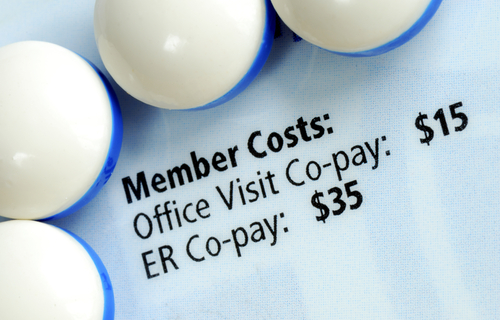What's the difference between a deductible, copay, and coinsurance?
Health insurance is helpful in helping you access needed medical care. But, it’s not always easy to understand the variety of payments you might be...

Your Flexible Spending Account (FSA) or Health Savings Account (HSA) are valuable tools for saving money on healthcare expenses. But, as we near December 31, it’s important to know whether you’re in a use-it-or-lose-it position. And if you are, it’s even more important to understand how you take advantage of these funds without forfeiting a penny.
We dive deeper elsewhere, but here are the key points to remember:
FSAs are typically sponsored by employers. Both your employer and you can contribute to the account on a pre-tax basis, but that amount is generally limited by your employer. You can use these funds to pay for qualifying medical expenses, but be careful – these funds generally expire at the end of the year.
HSAs are linked to a high-deductible health plan. Anyone, including your employer, can contribute to them. There are tax advantages for both contributions and withdrawals for qualified medical expenses. Unlike FSAs, these funds can roll over from year to year.
1. Review your account balance: It’s important to know what you’re working with. Your human resources department or your health insurance agent can help you log in to the institution that manages your FSA. Get an idea of what you have available, and then make a plan to spend it.
2. Spend on planned medical expenses: Both FSA and HSA funds can be used to pay for many expenses you might have between now and the end of the year: if doctor’s visits, prescription fills, dental or vision care, or necessary medical equipment are in your future, consider putting your FSA to work here.
3. Fill in your calendar: If you don’t have any planned expenses between now and New Year’s, this could be a great time to finally get that toothache looked at. Or, maybe there’s an annoying wart on your foot. Whatever the reason, your FSA can be used to pay for these appointments, too.
4. Consider preventive care: If you’re overdue for your annual check-up or need to book a routine screening (hello, blood panels, mammograms, and colonoscopies), your FSA can help out here, too.
5. Stock your medicine cabinet with over-the-counter items: Cold and flu medicine, nasal sprays, digestive relief, allergy relief, and most first-aid supplies are eligible FSA expenses.
6. Think outside the box, but stay inside the rules: Need prescription sunglasses? Modifications to your car or home due to a diagnosed medical condition? Ergonomic home office furniture to help treat that carpal tunnel? Those are all on the table, too. Check the federal government’s official list of approved FSA expenses here.
If you’re going to pay for something from your FSA or HSA, you’ll need proof you spent it on eligible expenses. Keep your receipts handy. And, be aware that every HSA or FSA has its own deadlines for submitting claims – your HR department or health insurance agent can point you in the right direction.
Contact our licensed health insurance agents today if you have questions about your FSA or HSA.

Health insurance is helpful in helping you access needed medical care. But, it’s not always easy to understand the variety of payments you might be...

About 50% of U.S. hospitals set their cash prices for services lower than their median insurance negotiated prices. 20% set their cash price lower...

Health insurance is a complex topic, but there are some cheat codes you can use to better understand it. The Affordable Care Act (ACA), also known as...